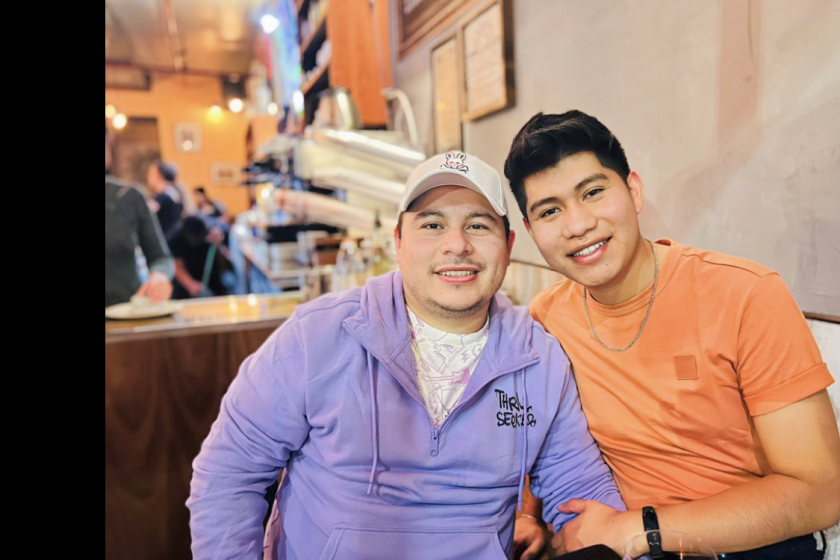Dedicated missionaries pursue their silent work in Haiti
Far from any spotlight, the Sisters of Charity are going about their silent and diligent labors to help the elderly and the children in Haiti, one of the planet’s forgotten corners, but they say they are receiving their reward in the gratitude of the Haitian people.
In the La Plaine zone, on the outskirts of Port-au-Prince, five of the nuns - including two Spaniards, a Haitian and a Pole - run a medical dispensary and a day center for the elderly, the pair of which provide the only aid available for many of their neighbors.
In this vast slum, like in many others around the Haitian capital - where most of the houses have no electricity or running water, the streets are unpaved and there are mountains of trash everywhere - the breakfast and other food provided by the religious workers at the day center are the only food some of the local residents get.
“In Haiti, the people are experiencing true hunger,” Natalia Martinez de Pablo - who at age 72 and with an “iron constitution” is the oldest of the nuns from this order in the poverty-stricken Caribbean nation and who came here 27 years ago, after serving in Switzerland and Thailand - told EFE.
“At least, here they eat and take a little food for the evening, because they don’t have anything. They are people who have been completely abandoned,” she said.
To illustrate the terrible living conditions in which half the 10 million Haitians find themselves, and whose situation has worsened in recent weeks due to the political and social tension and turmoil resulting from violent anti-government demonstrations, Sister Natalia said that one lady told her she was so hungry that she ate all the pills that had been prescribed for her to calm her stomach.
Haiti has been the scene of violent protests since Feb. 7, the second anniversary of President Jovenel Moise’s taking office, and all the while the country has been mired in a severe economic crisis which has been aggravated this year by the sharp depreciation of the gourde, the local currency, and runaway inflation.
In recent weeks, “The people did not have anything to eat because they couldn’t go out to sell the little that they had,” Madrid native Monica de Juan - the head of the La Milagrosa mission - told EFE.
The La Milagrosa mission houses the day center, which each day serves about 50 local elderly residents each day, some of them with psychiatric problems, and the dispensary, where five doctors attend to some 300 people daily.
Although the mission never closed its doors, despite the local unrest, most residents never dared to leave their houses for fear of the violence and street demonstrations, which left at least nine people dead.
The nuns say that they’re not afraid, although they did note that years ago the center was attacked and some of the sisters were beaten.
“They respect us. They know that in the religious communities, above all the female ones, we’re on their side. If we have something, it’s for them,” said Sister Monica, who has been in Haiti for eight years.
Every two weeks, the nuns - who also attend to urgent medical situations on the weekends - visit sick people in their homes.
One of those is Ernst, a 46-year-old volunteer at the day center who last November fell and broke his leg in two places.
Doctors waited to operate on him for two weeks, due to the road blockades and demonstrations which prevented them from acquiring the medical materials they needed for the surgery.
Now, Ernst is recovering and every now and then he leaves his tiny home made of corrugated iron sheets, with its roof full of holes, to walk with the aid of a walker through the nearby dusty streets.
In recent days, the country has regained a sense of relative normality and on Saturday, the doors of the day center were flanked by street vendors selling fruit, vegetables and various kinds of meat.
One of those street vendors was Andre, whose hand Sister Monica had to stitch up a couple of months ago after he cut it with the machete he was using to chop up the chicken he was selling at his market stall.
Like the other vendors, Andre affectionately greets the nuns and told EFE that the only help he and other local residents get is from the “Sisters of Charity and from God.”
Walking through the streets, where residents draw their water from public wells, the nuns come across a pair of children who proudly show them their new toys: two automobiles that they made for themselves out of plastic bottles.
Despite the serious situation in the country, Sister Natalia said that “Haiti is never news” except when there are dire catastrophes such as the 2010 earthquake that killed some 300,000 people, when there is “a short period of lots of noise, but then ... nothing.”
Sister Monica said that Haiti’s problem is that this kind of “aid comes at specific times” rather than other types of assistance that would “help the country to get ahead” over the longer term.
Without losing their smiles, however, the sisters recall that they were the first - before even the NGO’s arrived - to help those who got sick in the cholera outbreak that erupted in 2010 and killed more than 9,000 after the Nepalese contingent of United Nations peacekeepers dumped their infected fecal waste into a local river.
They say that they are happy to do what they are doing.
“It’s good luck to be able to be here despite all the difficulties,” said Sister Monica, while Natalia added that she “wouldn’t trade places with anyone.”
“Just the gratitude of the people. Seeing that your little bit of help is so useful, that it’s really worth it,” Monica said, is what keeps them going.



